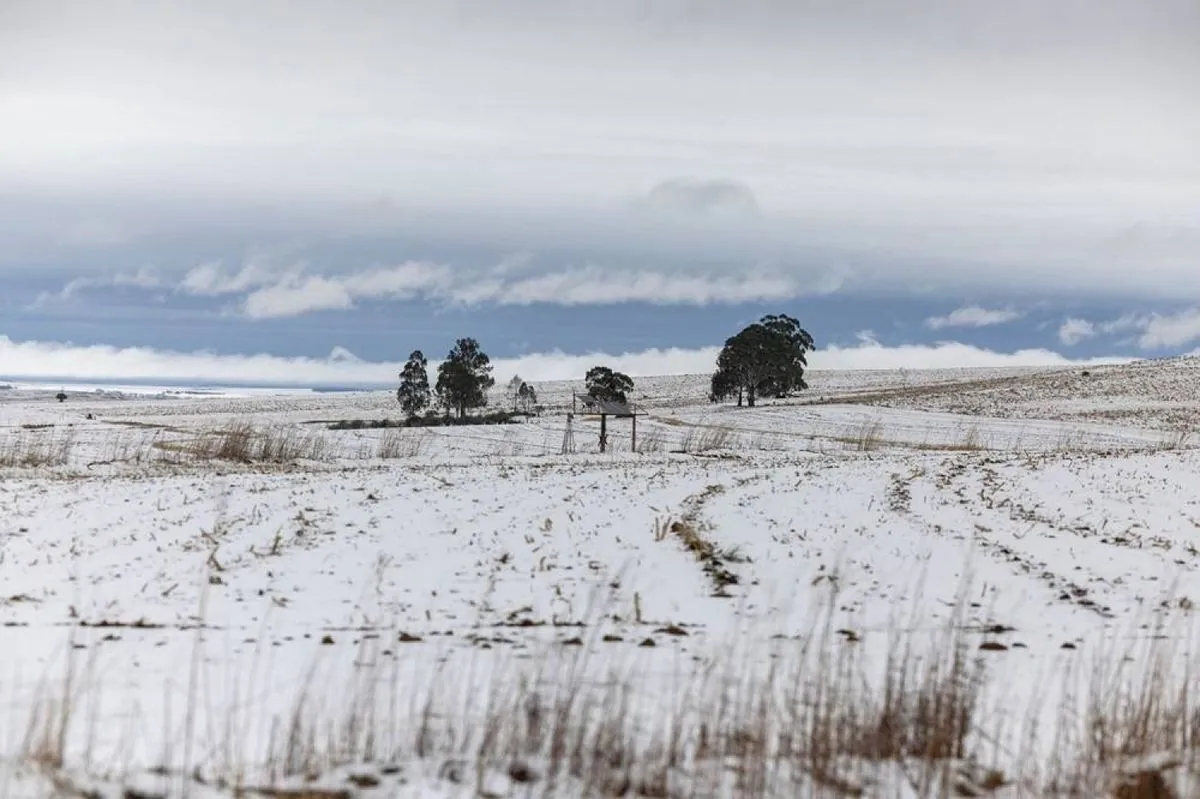Unseasonable snowstorms struck coastal regions of South Africa over the weekend of September 21-22, 2024, resulting in two fatalities and causing significant disruptions to transportation networks. The extreme weather event, unusual for a country with a generally semi-arid climate, has raised concerns about the increasing frequency of extreme weather phenomena potentially linked to climate change.
KwaZulu-Natal, South Africa's second-most populous province, and the Free State bore the brunt of the storms. These regions, typically known for their temperate coastal areas and agricultural production, faced unprecedented challenges as snow blanketed major highways and farmlands.
The N3 highway, a crucial 578-kilometer artery connecting Johannesburg to Durban, saw numerous vehicles stranded in the heavy snowfall. Tragically, two individuals lost their lives due to hypothermia while trapped in their vehicles. One of the victims was a 39-year-old woman in a minibus. Hypothermia, a dangerous condition where body temperature drops below 35°C (95°F), can occur rapidly in such extreme conditions.
Emergency services worked tirelessly to assist stranded motorists, towing vehicles and distributing essential supplies. The situation was particularly critical given that Durban, the largest city in KwaZulu-Natal and home to the busiest port in South Africa, relies heavily on this transportation route.
Agricultural communities in the Free State, a province renowned for its maize production and contribution to South Africa's agricultural sector (which accounts for about 2.5% of the country's GDP), faced significant challenges. Farmers reported crops buried under snow for two days, raising concerns about potential long-term impacts on food production and the local economy.
As temperatures begin to rise, authorities are now grappling with the threat of flooding. Thulasizwe Buthelez, the provincial minister for cooperative governance in KwaZulu-Natal, issued warnings about potential flooding along the Tugela River, the largest river in the province. Schools in the region remained closed on September 23, 2024, with parents urged to keep children away from water bodies.
This extreme weather event stands in stark contrast to South Africa's typical climate patterns. While the Drakensberg mountain range occasionally experiences snowfall, coastal areas usually enjoy a more temperate climate. The country's weather is influenced by both the cold Benguela and warm Agulhas ocean currents, contributing to its diverse climatic conditions.
The severity of this snowstorm is particularly noteworthy given that South Africa's winter typically occurs from June to August. The highest recorded snowfall in the country was 60 cm (24 inches) in Sutherland in 2014, making this recent event a significant meteorological anomaly.
As South Africa grapples with the aftermath of these storms, questions arise about the country's preparedness for such extreme weather events. With climate change potentially increasing the frequency and intensity of unusual weather patterns, there is a growing need for enhanced infrastructure and emergency response capabilities to safeguard communities and vital economic sectors.
"As schools remain closed, parents are urged to keep children away from unguarded bodies of water, including rivers and dams."
The impact of this event extends beyond immediate safety concerns, potentially affecting various sectors of South Africa's economy. From agricultural production in the Free State to logistics and transportation centered around Durban's port, the repercussions of this unseasonable snowstorm may be felt for months to come.
As the snow begins to melt, authorities remain vigilant, monitoring water levels and potential flood risks. This event serves as a stark reminder of the unpredictable nature of weather patterns and the importance of adaptive strategies in the face of a changing climate.
